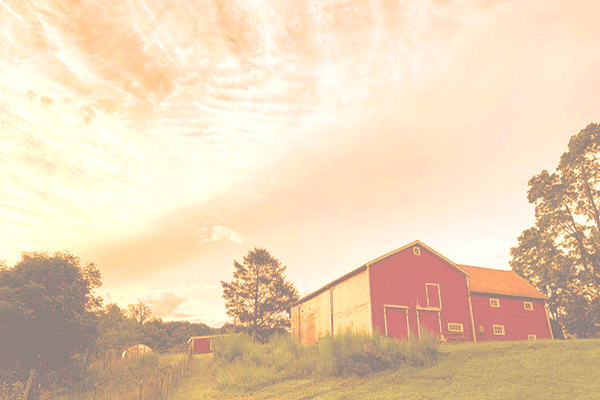|
RCBJ-Audible (Listen For Free)
|
County Seeks New Operator For 25-Acre New City Farm; RFA Leaves Behind A Menagerie Of Animals To Be Tended
By Tina Traster
Rockland County on Wednesday issued a gut-punching announcement: the Rockland Farm Alliance (RFA), one of the only remaining farming operations in the county, has dissolved its organization, leaving the future of the land and the animals on uncertain terms for now.
The County is seeking a new operator for the Cropsey Community Farm on Little South Tor Road in New City. The County said it is planning on putting out an Request For Proposals for a non-profit operator.
The development is sending shock waves through the community, which has relied on the farm for fresh produce, education, and a continuation of Rockland’s nearly extinct farming legacy.
Not everything is known about why the six-member board unanimously agreed to dissolve but sources say it’s a combination of a festering conflict with a staff member who filed a complaint with the Human Rights Commission, as well as untenable financial burdens the farm has long been grappling with. In addition, some say an effort by the farm’s Executive Director Sue Ferreri to have the farm designated as an agri-district may have caused internal conflict.
The Rockland Farm Alliance, a non-profit founded in 2007, is dissolving “per their board due to irreconcilable differences with the staff,” Ferreri said in a prepared statement. “The RFA will no longer operate at the Cropsey Farm and is dissolving the organization.”
Sources say employees had been struggling with the board for clear workplace policies for the past year. Some say board members showed indifference, allowing an atmosphere of tension to fester.
On Nov. 19th, with no notice, the entire staff was fired. Sources say employees were given a week’s salary, no severance, and no sick pay. Some suggest the lack of sick pay might lead to legal action.
Employees had been wanting to have basic policies and procedures in place, but that was lacking. Ferreri had always stressed that the RFA ran on a “human-centric” model, where employees’ needs were explicitly catered to and that workplace practices were flexible.
Board members contacted by RCBJ were unwilling to discuss the complaint filed by the former employee.
The organization, which shut down on Nov. 30, leaves behind a menagerie of animals: five goats, two pigs, 30 chickens, two turkeys, and five ducks. The Farm Alliance said the county is assuming responsibility for the animals. It remains unclear how or when farming will resume on site. One source said the farm has left hundreds of dollars in the fields in planted crops.
Also up in the air is what future role former Farm Alliance members will play in the recent acquisition of the Peter Depew House in New City. Earlier this month, Rockland County purchased the historic Peter Depew House, a sandstone Dutch house from the 1700s situated on 32 acres in New City, for $2.9 million. The county acquired the home and farmland through its Open Space Acquisition Program to ensure that this heritage-rich property continues to serve as a symbol of Rockland’s history and a resource for community. RCBJ reported that the Farm Alliance would be tapped to farm the land, but this remains unclear.
The Cropsey farm was purchased in 2006 under the County Open Space Acquisition Program.
Rockland Farm Alliance was founded on the former Cropsey Farm in New City. The 25-acre farm, once operated by the Cropsey family, is jointly owned by Rockland County (61 percent) and the Town of Clarkstown (39 percent). The nonprofit Alliance leases 25 acres but farms roughly five acres.
Helmed by Ferreri for nearly four years, the Cropsey Farm is a sacred oasis in a county that is increasingly losing open space to development pressure, including housing subdivisions and warehouses. One of just a handful of farms left in a once-rural county, the acreage is not only a plot for growing a cornucopia of veggies including cucumbers, pumpkins, lettuce, eggplants, radishes and more – it is a stage for education and community events. It has been a transport to the past, a hopeful experiment for the future.
“The County remains committed to preserving this nearly 25-acre site as both parkland and a working farm and plans are underway to seek a new operator to develop and manage a Community Supported Agricultural (CSA) program,” the county said in a press release.
“We extend our deepest gratitude to the RFA’s current and former staff and board members for their tireless work in operating and maintaining the County’s community farm,” said County Executive Ed Day. “While we search for a new operator, the Rockland County Division of Environmental Resources, which manages all county parks, will assume responsibility for the operation and direct oversight of the property and the animals residing on the farm.”
The farm, which employed 20 people and a team of volunteers, has relied on multiple revenue streams including a farm store, $60,000 from Rockland County annually (which has increased 10 percent each year), state grants, Community Block Grants, and corporate and individual donations. Two school districts, Clarkstown and North Rockland, pay $20 per student for second graders to visit the farm eight times over the school year and participate in educational programs. The farm also supports itself with a fall festival and winter holiday market, as well as an annual fundraising dinner.
But last year, Ferreri told RCBJ that the farm was struggling financially.
John McDowell and his wife Alexandra Spadea-McDowell co-founded Camp Hill Farm in Pomona in 2004; the musician and his wife dared to believe 21st century farming was possible in Rockland County. The Rockland Farm Alliance was formed in 2007 under the stewardship of the McDowells. Since Ferreri stepped in as Executive Director in 2021, she has inhabited her role with complete dedication, though some sources say there was tension among board members. She joined the New York State Farm Bureau, seeking support from farmers who’ve been mucking stalls and growing crops for decades, who’ve weathered rains and pests, who’ve stepped up to the demand for farm-grown produce at farmers markets, but whose children have left the farm.
Ferreri had been working to get the Cropsey Farm area designated as an “Agricultural District” in Rockland County, which also may have been a source of tension, according to sources.
An “Ag District” is a geographic area consisting predominantly of viable agricultural land. Agricultural operations within the district are the priority land use and afforded benefits and protections to promote the continuation of farming and the preservation of agricultural land. In practice, districts may include land that is actively farmed, idle, forested, as well as residential and commercial.
“We are hoping to bring the “Ag” board back together,” said Ferreri, last November. “There has been interest from the town, county, and all local farmers.”
Ferreri does not know will happen next but said last year: “All of the farm staff are dedicated to the farm, the school programming, and all of the community events we’ve been hosting as we move through this transition we hope to resume our regularly scheduled programming when we are able. We are so appreciative of the county, town and the community’s support at this time.”
The County’s Cropsey Community Farm was added to the National Registry of Historic Places by the National Park Service in 2017. The property, ca. 1800, includes a historic barn that was restored by the county for $1.55 million in 2019.














